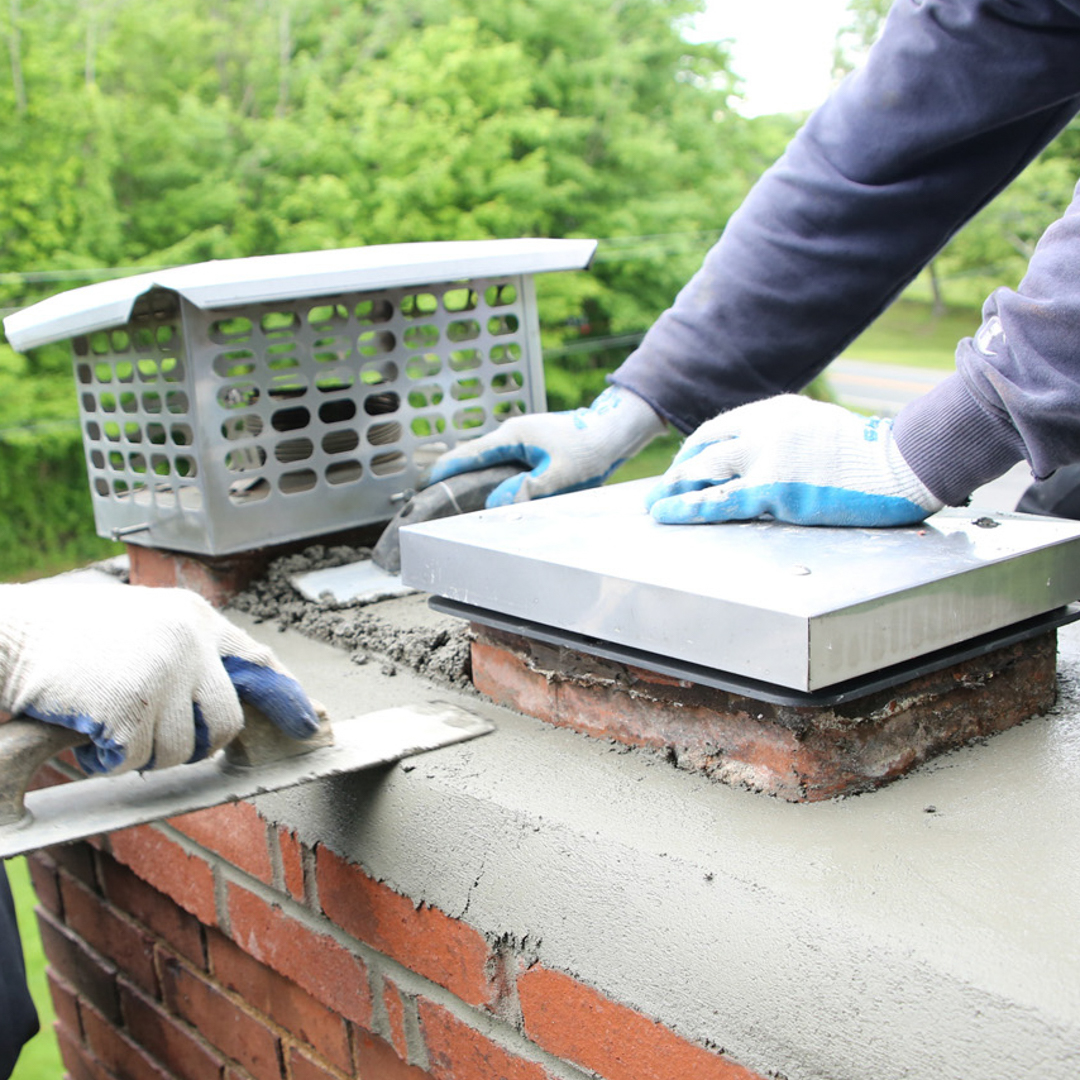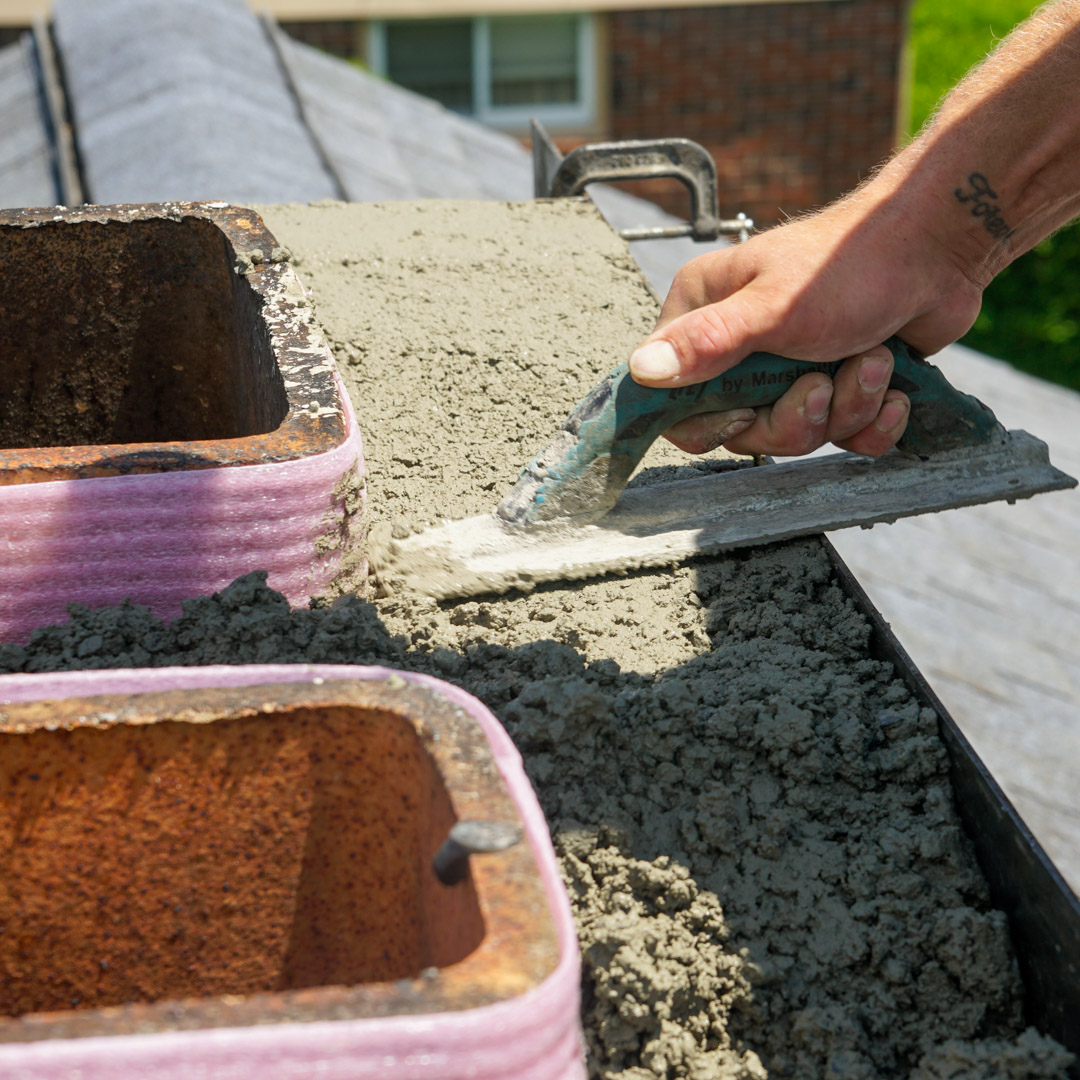What to Do About Cracks in Your Chimney Crown
Concrete chimney crowns sit at the very top of chimneys and are rarely seen. But that doesn’t mean you shouldn’t look at yours. It’s a good idea to inspect periodically for early signs of cracking and more severe damage.
 The Chimney Guys of Pataskala, OH, would like to explain the common causes of chimney crown damage, what the damage can lead to, and how to address cracks and other issues the right way.
The Chimney Guys of Pataskala, OH, would like to explain the common causes of chimney crown damage, what the damage can lead to, and how to address cracks and other issues the right way.
Crown construction
Chimney crowns are made of high-grade concrete, forming a slab over the entire top of a masonry chimney minus the flue opening.
Built with an angle for water runoff, a proper crown has a drip edge that helps keep rainwater and melting snow away from the masonry below the crown.
How chimney crowns become damaged
Old age will finally catch up with all crowns. But cracks and other damage can show up much sooner because of:
- Weather events, such as hail, lightning and powerful winds
- Falling tree branches
- Water penetrating the crown (see below)
- Shoddy crown repair work
- Low-quality material used to build the crown
Most cracks start small
Concrete is strong, but it isn’t impervious to cracking. When water gets into the cracks, it will begin to deteriorate the crown’s interior. In the winter, the intruding water will freeze and expand, causing more extensive cracking.
Possible results of a damaged crown
Masonry damage
When a crown is sufficiently damaged, water can move through it and begin to affect the tops of the masonry bricks. Bricks deteriorate much faster than concrete, so this can be a serious problem, particularly if the water damage spreads throughout the masonry. A leaning or collapsed chimney could be the worst-case result.
Chimney liner damage
Severe cracks and gaps in the crown can allow water to move into unseen areas of the chimney and possibly damage the chimney liner. If this happens, flames can escape and start a house or chimney fire. Smoke and deadly carbon monoxide can escape and move into the home’s living spaces.
Animal invasion
Small animals like to shelter in chimneys. If the breaks in a chimney crown are large enough, birds, squirrels, rats and other critters may come in and take over.
Mold
Water moving through a damaged chimney crown can settle in dark, unventilated spaces in the interior chimney. This is the perfect recipe for mold, which can spread to other parts of the home and even infiltrate the air you breathe.

Repairing a cracked chimney crown
After an inspection, your chimney technician will recommend either patching the crown or rebuilding it. Minor cracks can often be patched, but a crown that’s deteriorating throughout the structure will need to be rebuilt.
After repair or rebuilding, the crown can be sealed with a special waterproofing application.
Chimney crown work should be performed only by experienced professionals. Crowns may look like simple structures, but they need to be repaired and rebuilt correctly to provide you with optimal protection in the years ahead.
If your chimney crown is cracking or showing obvious signs of major damage, The Chimney Guys is standing by to help. Reach a chimney expert in the greater Columbus, OH, region by phone or through our contact form.



